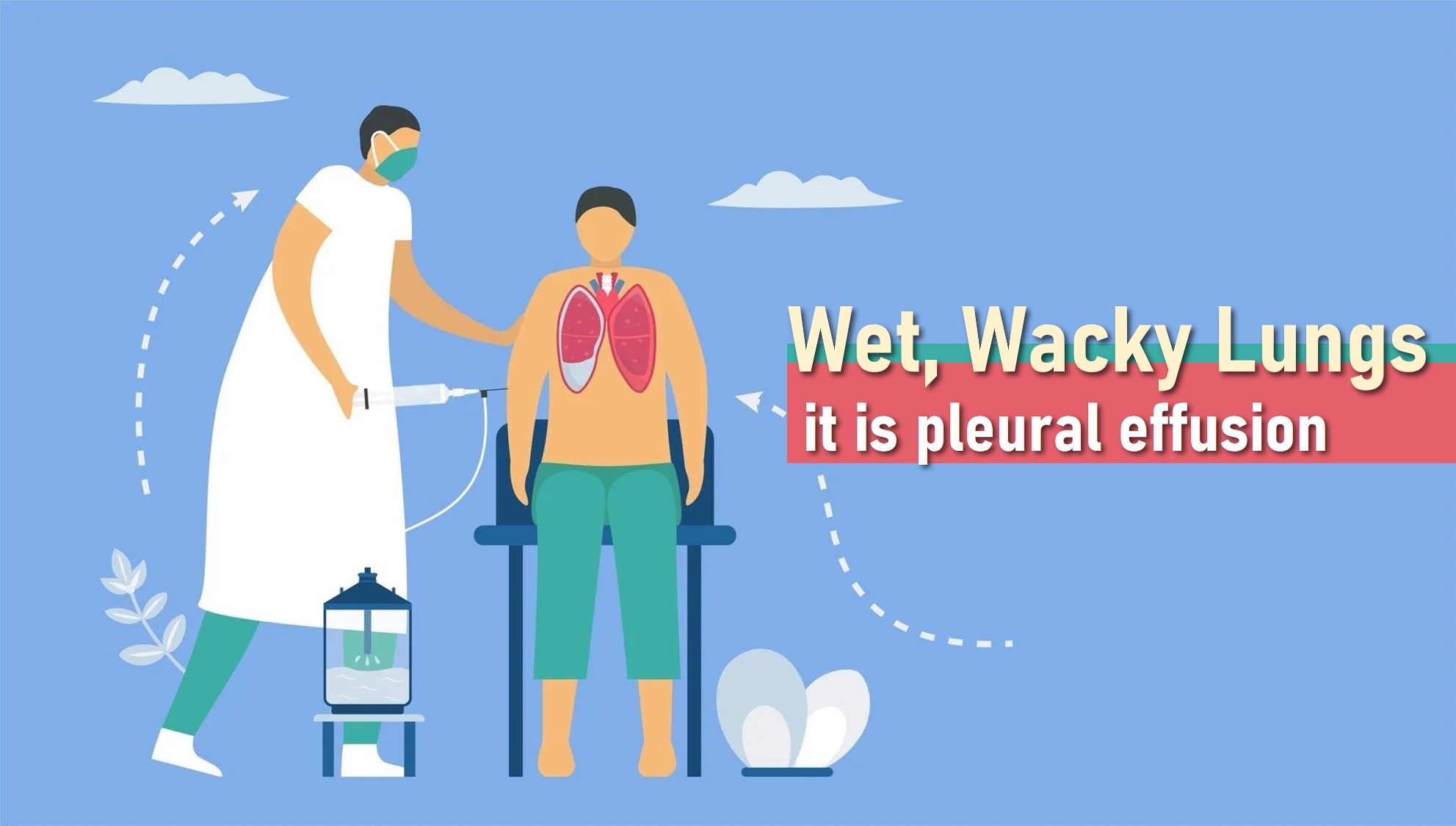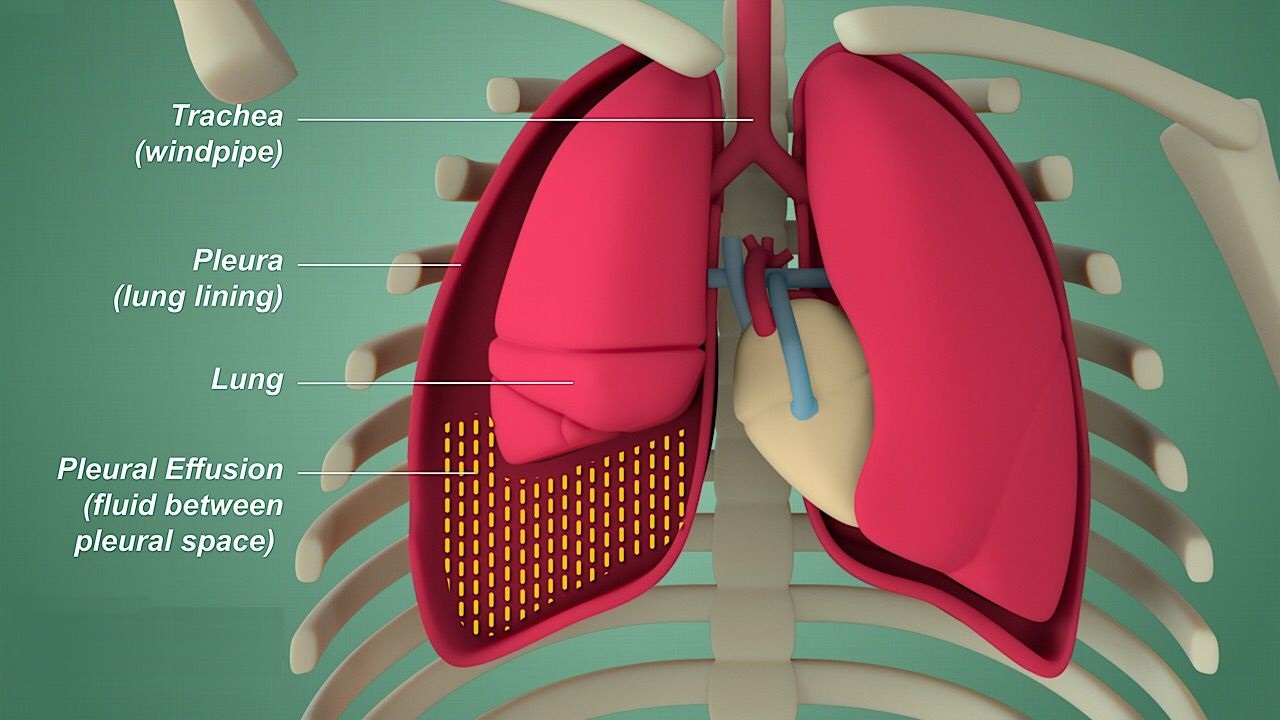- Swastik Clinic, Ahmedabad, GJ, IND
- Call: 8849867169 (For Appointment)
- Mon - Sat: 10 AM - 08 PM
- Sun: Only Emergencies
Wet, Wacky Lungs: What is Pleural Effusion?

Wet, Wacky Lungs: What is Pleural Effusion?
Pleural effusion – A build-up of fluid between the tissues that line the lungs and the chest.
Certain medical conditions can cause a pleural effusion. So, your pulmonologist will target the treatments at whatever caused it. It’s a serious condition associated with an increased risk of death.
What is pleura?

The pleura is a thin membrane that lines the surface of your lungs and the inside of your chest wall. When you have a pleural effusion, fluid builds up in the space between the layers of your pleura.
What causes pleural effusion?
A wide range of things can cause a pleural effusion. Some of the more common ones are:
- congestive heart failure (the most common cause overall)
- cirrhosis or poor liver function
- pulmonary embolism, which is caused by a blood clot and is a blockage in the lung arteries
- complications from open-heart surgery
- pneumonia
- severe kidney disease
- autoimmune diseases, such as lupus and rheumatoid arthritis
Pleural effusions and cancer. Pleural effusions can be the result of cancer cells spreading to the pleura. They can also be the result of cancer cells blocking the flow of normal fluid within the pleura.
Symptoms and signs of pleural effusion
Some people show no symptoms. They usually find out when a pleural effusion is moderate or large-sized or there is inflammation. Common symptoms include:
- dry cough
- chest pain
- fever
- difficulty breathing while lying down
- shortness of breath
- persistent hiccups
- sometimes even difficulty with physical activities
How it is diagnosed
Your pulmonologist will perform a physical examination and listen to your lungs with a stethoscope. Other tests include:
- CT scan
- Chest ultrasound
- Bronchoscopy
- Pleural biopsy
- Pleural fluid analysis
Pleural effusion treatment
Large, infected, or inflamed pleural effusions often need to get drained to help you feel better and prevent more problems. It is done either with a needle or a small tube inserted into the chest.
Other procedures for treating pleural effusions include:
Pleurocentesis/Thoracentesis. If the effusion is large, your doctor may take more fluid than they need for testing, just to ease your symptoms.
Tube thoracostomy (chest tube). Your doctor makes a small cut in your chest wall and puts a plastic tube into your pleural space for several days.
Pleural drain. If your pleural effusions keep coming back, your doctor may put a long-term catheter through your skin into the pleural space. You can then drain the pleural effusion at home.
Pleurodesis. It is a procedure that uses medicine to adhere your lung to your chest wall. It seals up the space between the outer lining of your lung and chest wall (pleural cavity) to prevent fluid or air from continually building up around your lungs.
Pleural effusion treatment in Ahmedabad
Pleural effusions can be serious and life-threatening. Most require hospitalized treatment and some require surgery. So, if you are looking for consulting a pleural effusion doctor in Ahmedabad, reach out Dr. Kalpesh Panchal at Swastik Clinic.
Recent Posts
Archives
- April 2022
- January 2022
- December 2021
- November 2021
- August 2021
- July 2021
- June 2021
- May 2021
- April 2021
- March 2021
- February 2021
- January 2021
- December 2020
- November 2020
- October 2020
- September 2020
- August 2020
- July 2020
- June 2020
- May 2020
- April 2020
- March 2020
- February 2020
- January 2020
- December 2019
- November 2019
- October 2019
- September 2019
- August 2019
- July 2019
Categories
Recent Posts


I Got Covid-19 & Have Asthma – What Now?
09th Jan 2022
